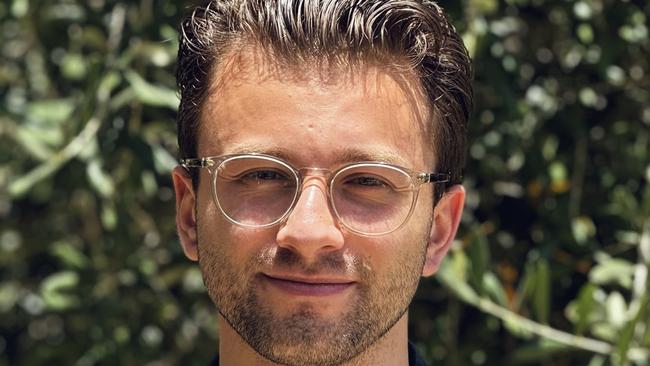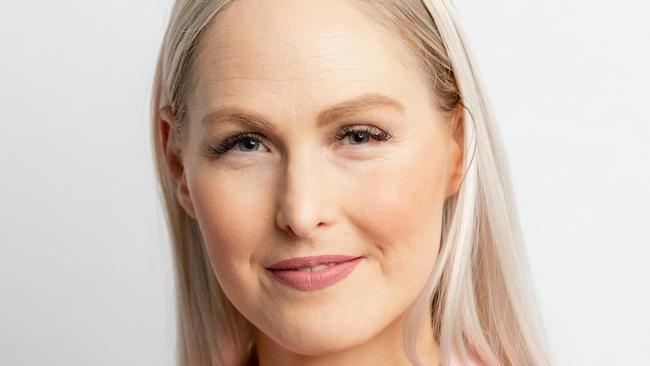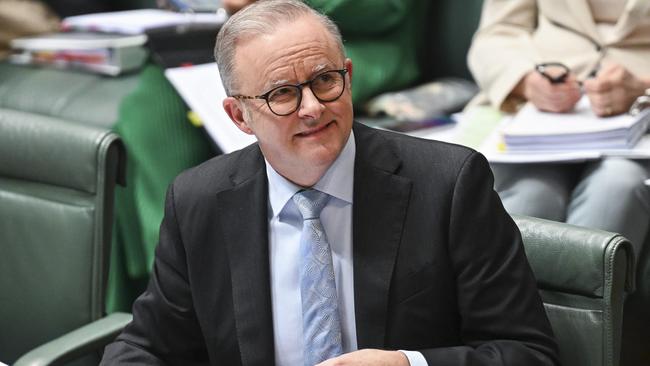‘Heartbreaking’: Students plunged into poverty as they miss out on $300 placement payment
It is the payment that is dividing one group of Aussies. It means that some can survive while others are “plunged into poverty”.
Costs
Don't miss out on the headlines from Costs. Followed categories will be added to My News.
Psychology students are leaving universities often with HECS debts higher than $100,000 but are also dumped into “poverty placement” during their studies.
Pheobe Ho came out of university with an eye-watering HECS debt of $99,000 after completing a post graduate clinical psychology degree at a Western Australian university.
She said they were required to complete a minimum of 1000 unpaid placement work over the two years while juggling course work, writing a research thesis and trying to keep themselves afloat financially.
Yet post graduate psychology degrees were left out of the government’s announcement to provide $319.50 per week of placement for courses such as teaching, nursing, social work, and midwifery, which was another “big blow”, said Ms Ho.
“We do a minimum of 1000 placement hours unpaid, on top of thesis, coursework, assessments/exams, which is an unsustainable workload,” she said.
Do you have a similar story? Contact sarah.sharples@news.com.au

She said the paid placement would be an enormous help for postgraduate psychology students and also in training up the next generation of psychologists.
“Including postgraduate psychology as part of the Commonwealth prac payment would mean that many more individuals would have the chance to study postgraduate psychology. Given the current mental health crisis, we need to do more to support training up our future psychologists,” she said.
“It’s heartbreaking to hear that many undergraduate students are reconsidering studying postgraduate psychology because they are concerned about the costs of training. This is in terms of making ends met whilst undertaking training, as well as what their HECS debt will be like”.

Ethan Luxton is another Western Australian university student who racked up $101,000 in HECS debt to train as a clinical psychologist.
He said it was “super valuable” that the other courses were getting the $300 payment but he felt like psychology had been left out.
He had to turn down a Commonwealth supported place in Melbourne to complete his postgraduate clinical psychology studies – which would have left him with a much smaller HECS debt – as he couldn’t afford to live out of home and complete the unpaid training.
The Perth resident said postgraduate psychology students are studying, doing practical placements and are often trying to work part-time meaning they don’t get a break – working seven days a week.
“I feel that the costs of providing such a payment for psychology students wouldn’t blow up to be that much of an additional cost for the government,” he added.
“Any little bit would help – one less day in week that they had to work would mean extra time that would give them to look after own mental health, do course work and pracs and assignments to spend time with families, friends and socialise, which is massively important.”
The Australian Association of Psychologists (AAP) said it was disappointing that psychology students had been ignored in the Federal Government’s paid placement scheme, given the significant shortage in the psychology workforce and exclusion from this scheme will further entrench this shortage.

AAP executive director Tegan Carrison said student placements provide valuable clinical experience but being unpaid puts them at a disadvantage.
“Psychology students can do up to 1000 hours unpaid labour for their placements which pushes them into placement poverty, impacts their mental health and wellbeing, and is a deterrent for many who come from low socioeconomic backgrounds to be able to participate in higher education,” she said.
“Given the mental health workforce needs to grow rapidly to care adequately for the country’s mental health needs - psychologists are only meeting 35 per cent of the Federal Government’s psychology workforce goal - we are calling for the urgent inclusion of psychology students in this scheme.
“As healthcare professionals in training, they should be given equal consideration.”

Psychology student Tina Psaltis launched a petition pleading with the government to save the future of psychology in Australia and is in her fourth year of her degree at the University of Technology, Sydney.
She is facing the daunting task of finding a spot for postgraduate clinical psychology studies and trying to survive.
“It was disappointing to hear that psychology students are not eligible for the placement payments, especially since the workload in psychology masters and placement plus coursework plus research makes it very difficult – borderline impossible – for students to work a part time job as well,” she said.
“This also deters a lot of people from pursuing a career as a psychologist.”
A Department of Education spokesperson said the government appreciates the challenges many students experience with meeting the cost of living while studying and completing mandatory placements.
“While there are other courses where placements are mandatory, the Employment White Paper highlighted teaching and care professions as key enablers for the economy,” they said.
“The Australian Universities Accord also recommended the Government work with tertiary education providers, state and territory governments, industry, business and unions to consider further support by employers (public and private) to mitigate the risk of financial hardship and placement poverty for students in other courses.”
Alarm bells
Meanwhile, the Australian Psychological Society (APS) has been sounding alarm bells on the government’s failure to fund university placements for postgraduate clinical psychology training – a problem that has been bubbling away for a number of years.
Last year federal and state governments agreed that Australia is meeting just 35 per cent of its psychology workforce target – exposing the dire need – yet nothing has been done to address this issue.
Despite claims by the government it is investing $55.8 million into universities to create additional postgraduate psychology places – only one Commonwealth supported place per institution is required each year.
Yet, the psychology workforce currently sits at approximately 40,000 with the investment doing little to boost the workforce to its need of 115,000 psychologists.

The government said it was introducing an additional 500 one-year internships will also be provided for provisional psychologists and 2000 supervisor training places will also be fully subsidised, including 1000 refresher places to ensure support for provisional psychologists throughout their internships, the Department of Education spokesperson said.
“This significant investment will help address immediate issues while the government works to redesign psychology higher education pathways,” they added.
“The redesign is being developed in partnership with the sector and will be led by the Psychology Board of Australia to support longer term reform.
“The redesign will consider opportunities to streamline psychology training, embed a focus on practical learning, and address access and equity challenges to support more students to complete their studies and go on to professional registration.”

New psychology assistant role
The government has also provided funding to explore the viability of a psychology assistant role in the Australian mental health system, the spokesperson noted.
“The psychology assistant role is an innovative model that exists internationally to deliver early intervention services,” they said.
“The funding will support consultation with the psychology and broader health sector and include consideration of scope of practice, regulatory requirements and training pathways for a psychology assistant role.
While Dr Davis-McCab said she welcomed the government’s commitment to extending the broader mental health workforce through psychology assistants, the APS does not support professional substitution.
“Our well established and evidence-based position is that we need more psychologists in Australia. Substantial investment in the fully registered psychology workforce is fundamental to any reform efforts,” she said.
The development of any role for psychology assistants must be psychology profession-led.
sarah.sharples@news.com.au
Originally published as ‘Heartbreaking’: Students plunged into poverty as they miss out on $300 placement payment





